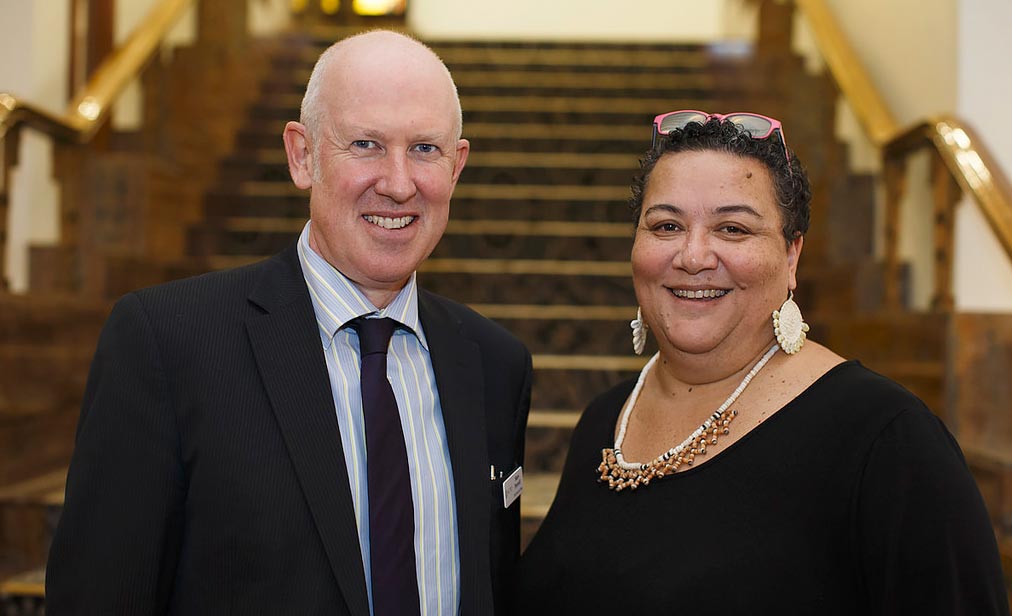Reflections on the 2017 national conference

ACFID’s 2017 national conference in Melbourne marked our largest member engagement event in recent years and the culmination of months of preparation by ACFID’s secretariat.
Building on previous conference themes, in 2017 we explored how the Australian aid and development sector can better understand and drive change that is truly transformational. The challenges facing us today exist within complex systems that, left unchecked, perpetuate inequality, marginalisation, and environmental degradation, and so we aim to encourage recognition of transformational change as not merely a goal but a better way of working – for a better world.
Inspiring speeches provoked new thinking around three conference themes, moving delegates to understand that to create change that is truly transformational, we need to: engage in action and advocacy in solidary with grassroots social movements around the world; create transformational organisations, exploring new opportunities and business models that will equip us to embrace the changes into the future; and rethink our understanding of what it means to lead – certainly we can achieve more together than we ever will alone.
Delegates were set on a path to answering some of our most confronting questions, such as what it means to transform or to have been transformed, who or what is the focus of transformation, what this means in practice, and how it can be achieved from a systemic, integrated approach. Member-led sessions and expert panels interrogated the meaning and nature of transformational change and encouraged delegates to consider what they might do to create, engage with, and lead a world where transformational change for sustainable development might become the norm. We heard practical examples from early adopters, who surfaced and shared good practice in re-engaging with concepts of thinking and working politically, particularly from an activist/advocacy perspective.
Minister Concetta Fierravanti-Wells reflected on the years’ progress since her address at conference 2016, remarking that in an international environment experiencing profound change development assistance will remain an important element of our international engagement. From 2016, the Minister has seen some very good movement in the right direction in terms of partnerships within the private sector and diasporas. She welcomed further initiatives from ACFID and ACFID’s members bringing more diasporas into closer contact with our Australian Aid program, but sought further collective efforts to improve on public engagement with the aid program and the sector’s efforts.
Shadow Minister for International and the Pacific, Penny Wong, reflected upon the importance of development assistance, and growing inequality around the world. In this current environment, said Senator Wong, “there’s an immense need for support for development assistance to come before partisan politics. Global demand for development assistance has not subsided, but the global trend to isolationism and nationalism is putting aid under increasing strain in donor nations”.
Leader of the Australian Greens and Spokesperson for Foreign Affairs Senator Richard Di Natale emphasised the need for civil society to be strong if transformational change is to occur. Senator Di Natale cited the latest proposed policies to restrict charities from receiving international philanthropy as an example of the Government promoting policies to restrict this vital space.
Prior to the official opening of conference 2017, a series of resolutions were debated and passed at ACFID’s Annual General Meeting, including: support for the Uluru Statement from the Heart; a call for the Australian Government to be a champion for the role of civil society; and in relation to the closing of the Manus Island Detention Centre, members called on the Australian Government to bring all refugees and people seeking asylum to Australia while determinations are made about durable solutions for each of them.
During the AGM, we also saw endorsement of our new ACFID President, Susan Pascoe and Vice-Presidents, and election of new Board and committee members. Outgoing ACFID president Sam Mostyn’s impact on ACFID and its members will be lasting, as a champion of the sustainable development goals and bringing together disparate sectors.
Overall, the 2017 Conference delivered a call to action – feeding into ACFID’s work for coming year, including in advocacy and campaigning, but equally for our members to take up action and advocacy for transformational change throughout the sector. Our call to action encompasses engaging widely and harnessing the interconnectedness of issues, advocating for a stronger Australian Aid program, taking up the recommendation of the referendum council to activate for greater recognition and empowerment of indigenous Australians, engaging in environmental activism, and creating inclusive leadership.



